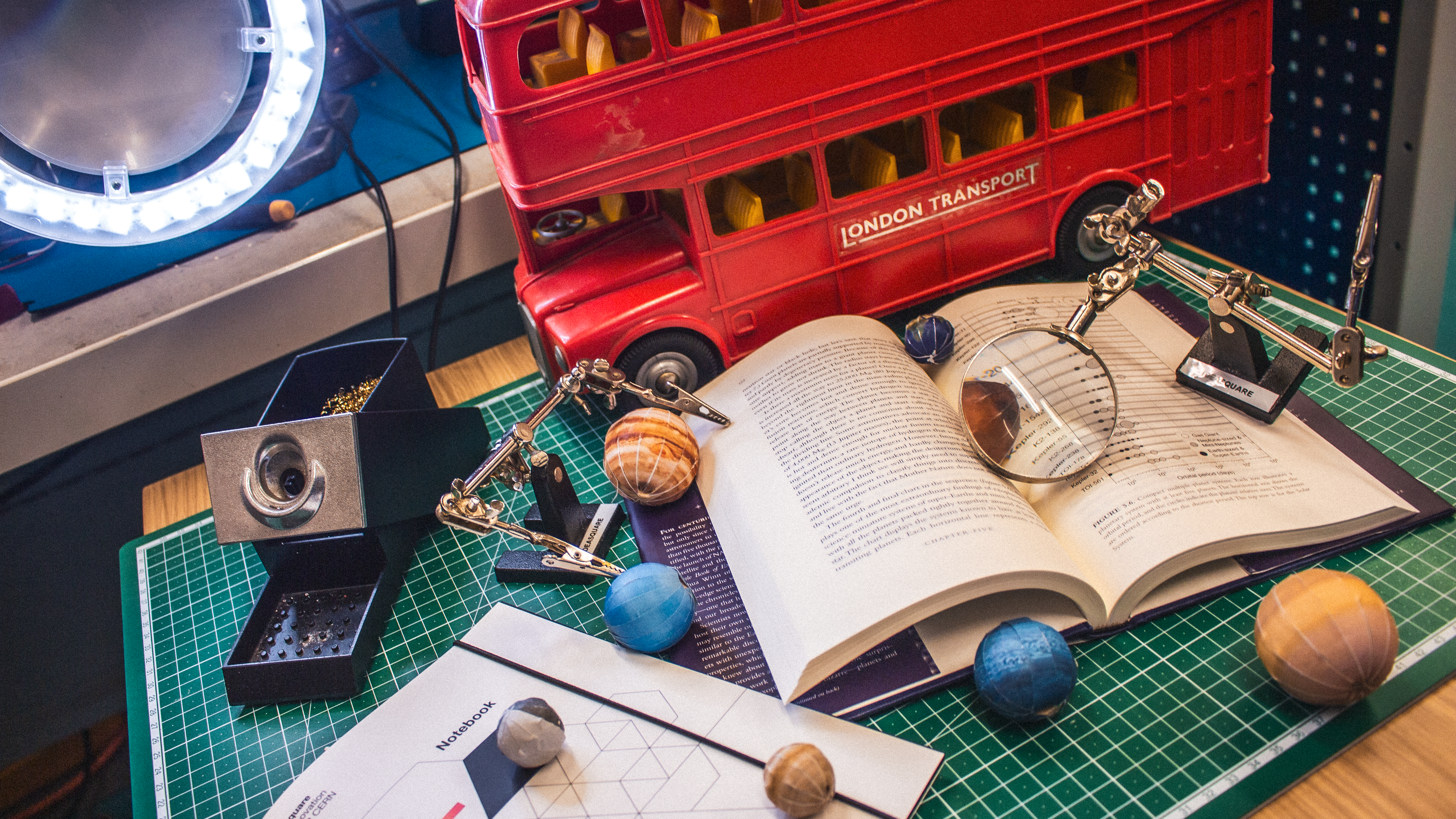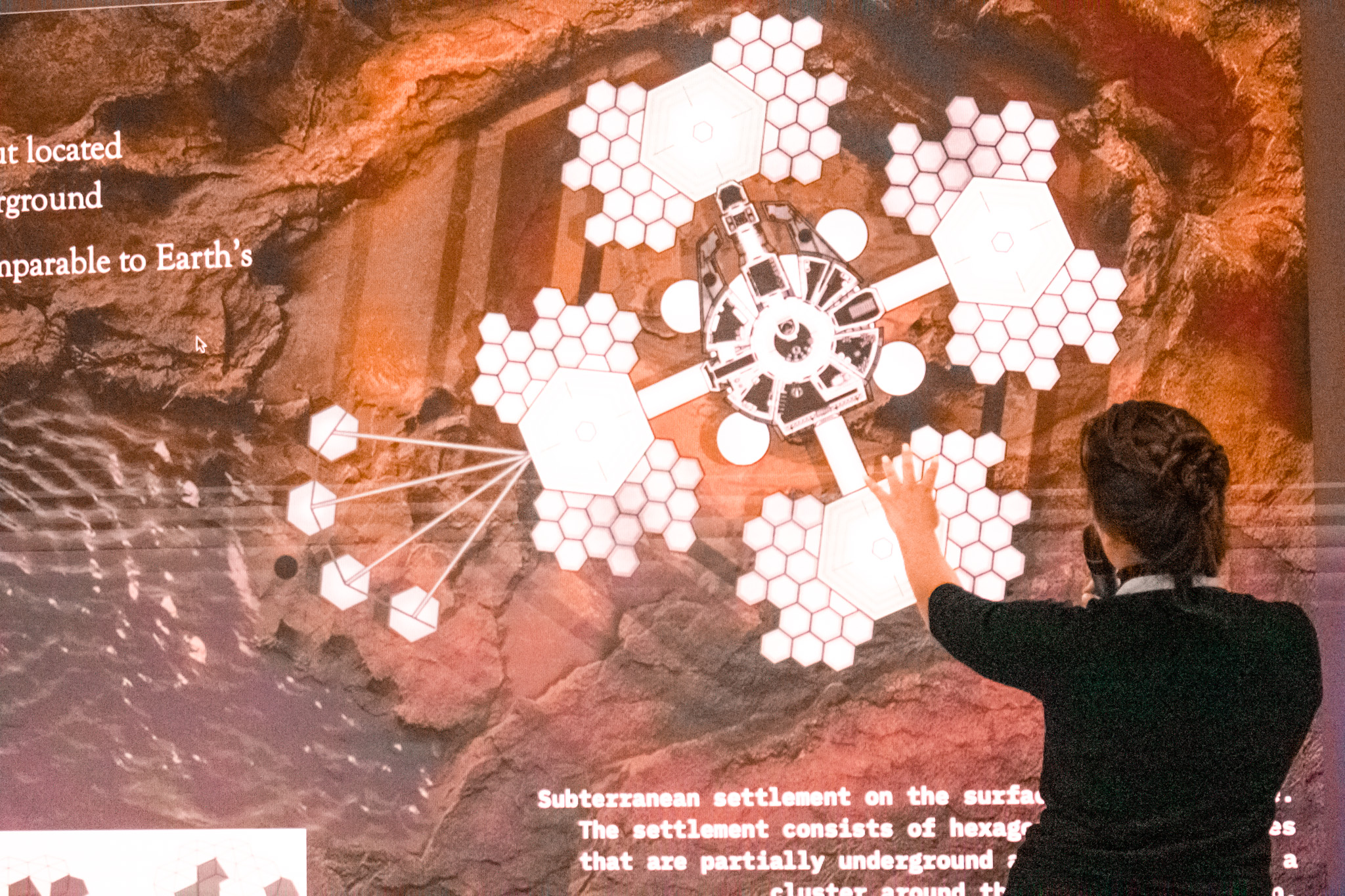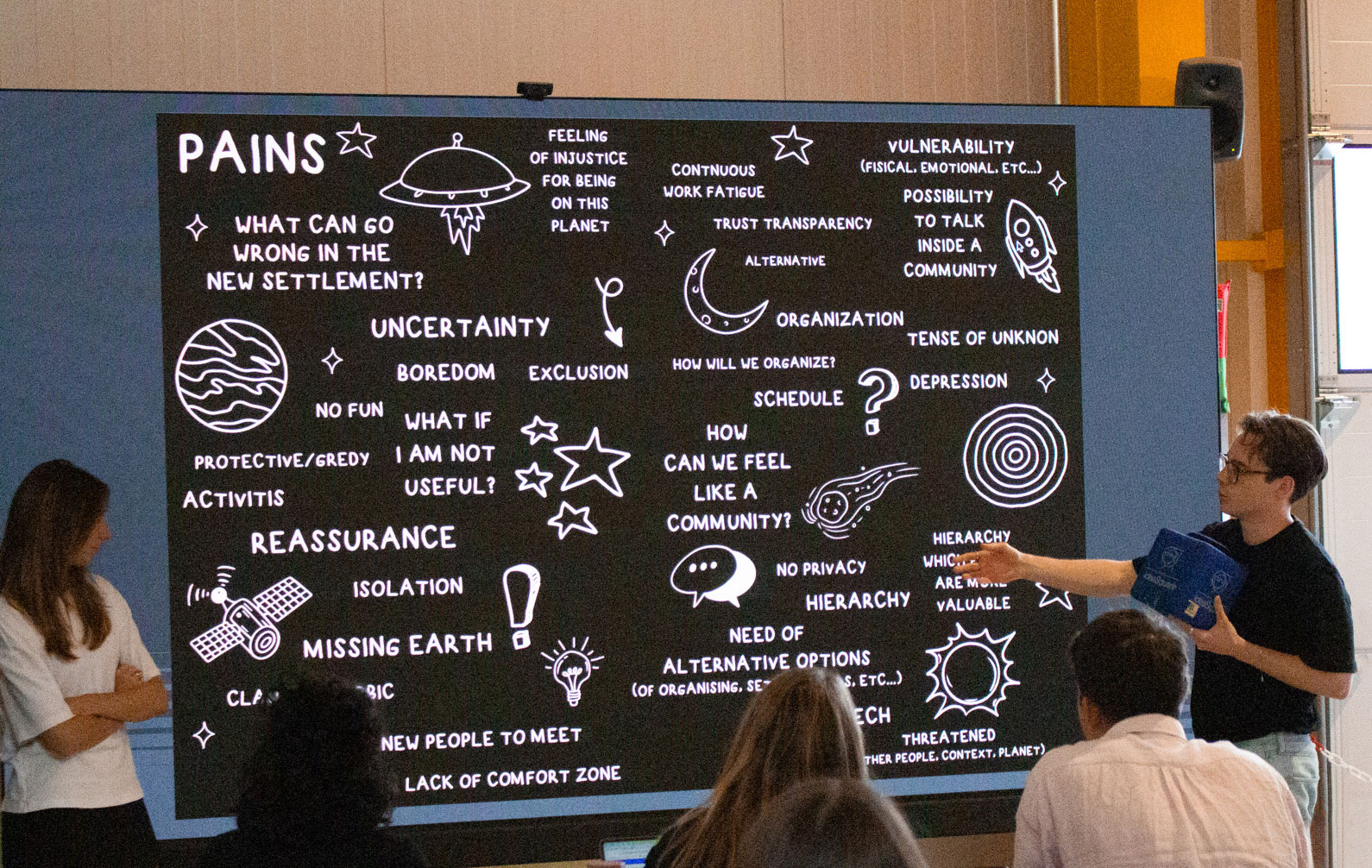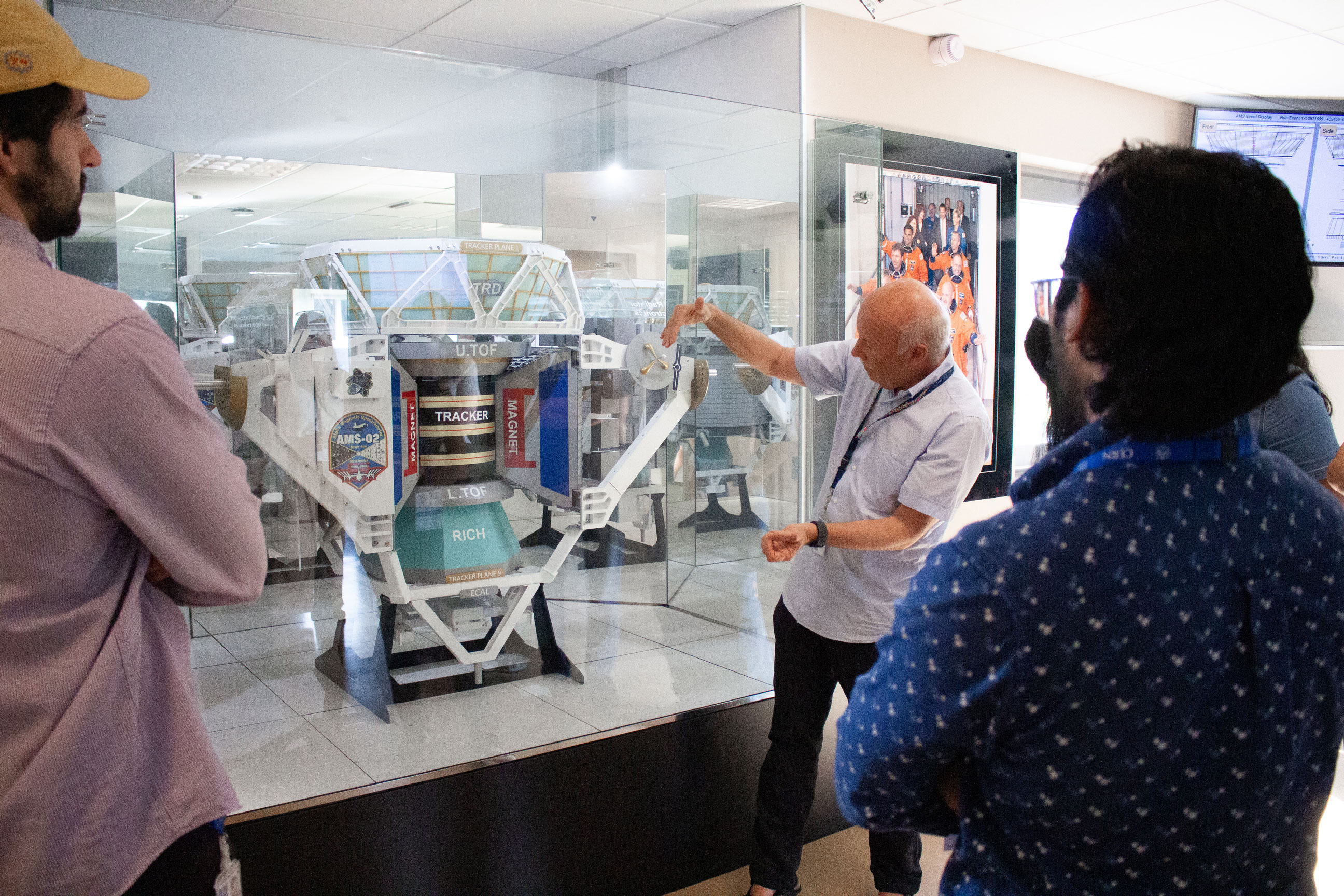Innovation education for the future: a case study of CERN IdeaSquare Planet
The research team at IdeaSquare has just published a scientific paper suggesting its programmes develop essential futures skills, providing practical insights for educators interested in implementing similar methodologies for transformative innovation education

With the future being increasingly perceived as uncertain, education must develop skills to foster sustainability and responsibility in unpredictable circumstances. Both academia and industry are trying to adapt to this perceived uncertainty. One common way of adaptation is through futures education, in which futures thinking and skills are combined to create citizens and professionals comfortable with navigating uncertainty, whilst fostering both responsibility and sustainability. IdeaSquare’s new educational programme works towards cultivating these skills.
In order to ground IdeaSquare’s educational endeavour in ever-increasing scientific evidence, a research group composed of members of the team set about defining how this programme could be developed to meet future educational needs. They just published a case study on IdeaSquare Planet.
IdeaSquare Planet: a new educational programme at the intersection of innovation and transformative futures education

the IdeaSquare Planet programme
IdeaSquare’s new educational programme, IdeaSquare Planet, is taking us on a cosmic journey to an exoplanet and then back to Earth. At its core, this approach aims to challenge students with a bold question: What if humanity were compelled to start anew on an entirely different planet? How could we make choices that prioritise sustainability? Moreover, could the knowledge gained during this cosmic journey be effectively applied to real-world situations on Earth?
Built on the foundation of futures thinking methods, IdeaSquare Planet equips master’s level students for tackling complex, or “wicked,” problems. It focuses on teaching futures skills such as systems thinking, both qualitative and quantitative reasoning, strategic planning, and decision-making under constraints, therefore preparing students to navigate and address such multifaceted challenges in transdisciplinary teams.
Research to improve our educational programmes
A research group has been created at IdeaSquare to focus on improvements for its educational programmes, and study emerging student practices. The group applies IdeaSquare’s holistic, multidisciplinary approach to innovation by being itself composed of members from different disciplines, such as anthropology, sociology, psychology, engineering or organisation science.
For this study, these disciplines helped inform the structure of IdeaSquare Planet according to their particularities. Overall, in comparison, psychology emphasises futures imaginaries’ impact on human behaviour, anthropology emphasises transfromativeness for social justice, and sociology brings forward the role of technology in shaping society in futures imaginaries.

might face in establishing life on an exoplanet
The research group employed an explorative methodology to study how IdeaSquare Planet contributes towards meeting futures relevant skills of fostering openness to alternatives and uncertainty, methods to critically examine the status quo, and impacts on present behaviour. The goal was to discover broadly the impacts of IdeaSquare Planet in order to further develop both the programme and research on futures education for transformative innovation.
It resulted in a paper that explores the first case study of an experimental educational futures’ methodology intended to meet the three identified futures educational needs of openness to alternatives, methodological richness for transformativeness, and impact on the present moment problem solving.
Impact on openness to alternatives
One theme highlighted in student responses was their increased openness to others’ points of view for the future.
“I learned how to analyse problems from other people’s perspective (problem solving in diverse teams),” “I learned to try and listen more to different ideas, even if they sounds insane, because of the task all ideas felt insane,” “nice to try to understand how every person in my team thinks, because, for example, there were an engineer, a designer, and we have like different ways of thinking and try to come to explain to each other our ideas and the way we are generating them”
In a second theme of opening up to alternative futures, students reported taking away from the experience lesser constricted thinking and openness to critically examine ideas they would have considered too eccentric before. Examples of comments in this theme were:
“Be less constrictive in my thinking,” “That even seemingly crazy ideas are worth considering,” “The challenge was widely open allowing us to boost our imagination,” learning to “Think out of the box but having arguments to justify your ideas,” “Having the freedom to imagine unusual solutions to unusual problems” and taking away “New perspectives on my own ethics.”
However, by observing student teams solving the challenge in real time, the researchers find both support and contradictions to this reported increased openness to alternatives, seeing, for example, that openness to alternatives is also limited by narratives of techno-optimism and pessimism about the future of humanity.
Findings on methodological characteristics
One aspect that was studied in this research is how the IdeaSquare Planet methodology and toolkit allow for the deconstruction of existing worldviews and how they can increase agency and capability to deal with uncertainty. Students highlighted the complexity and uncertainty combined with freedom as the defining experiences, as well as learning to deal with those as a key takeaway from IdeaSquare Planet. Examples of learnings in this theme were:
“Opportunity of transforming a vague inquiry to a more definitive solution,” “Opportunity to manage our time freely,” “To define the details of the problem being solved and take them all into account in the solution,” and as a takeaway learning “How quickly we can adapt.”
However, this was also considered a challenge with multiple comments on the methodology highlighting that “It is hard to work without structure.” This learning did not come without challenge, with students noting that discussions often waxed and waned and could have been grounded by implementing more of concrete methodologies like prototyping. A point on which the teacher agreed too. Facilitators also highlighted that running the programme and meeting learning goals is easier when the methodology is planned and co-designed with the teaching team.
Impacts on the present moment problem solving
One key missing component of futures studies is impact assessment on actions and behaviour over attitude and employability. In IdeaSquare Planet, the learnings from the futures exercise are afterwards applied to solving a present world problem, thus, applying the learnings immediately.
Specifically, openness to alternatives and different ways of seeing problems were highlighted in the second part learnings in addition to confidence in dealing with complex problems in transdiciplinary teams. Examples of notes specifically related to this “coming back to Earth” part were:
“I learned different points of view, new tactics to tackle certain issues. I learned that combining people with different backgrounds and cultures opens a new perspective and overall increases the quality of the final outcome,” “it’s to break down complex problems that cannot be solved by a small team or a single person, and to share the complexity among different, let’s say, business teams that work together,” “New ways to solve, analyse and work on complex problems as big and small teams,” and learnings of “How uncertainty can impact overall performance.”
However, some dangerous assumptions persist. In the observational data, despite students feeling increased openness to consider alternatives, a common narrative of tech-optimism emerged, assuming technology and technology only can provide “neutral” decision-making. Facilitators noted a felt lack of connection between the two parts of the programme (“on the exoplanet” and “back to Earth”), and suggested this as one potential reason for some of the unmet expectations for transformativeness.
Science fiction for transformative education
The IdeaSquare Planet pilots studied were, to a degree, successful in meeting the goal of futures studies to challenge norms, institutions, understandings and especially the participants’ own thinking. However, they were not as successful in preventing techno-optimism and deterministic thinking and, thus, development ought to be made to challenge the youths’ mystical and all-capable conceptualisation of technology.

(AMS-02) space experiment at CERN
Clearer outcomes were increased capabilities to deal with uncertainty and to freely collaborate in transdisciplinary teams to solve a systemic problem towards meeting the UN’s Sustainable Development Goals.
In terms of research on futures education, the findings reveal emergent insights that have been barely explored in research, such as the connection between openness to alternatives and transdisciplinary discussions. While the differences between students’ backgrounds vary, they can offer a way to study and leverage how different futures views can increase openness to alternative futures over hegemonic ones in educational methodologies.
IdeaSquare Planet was found to be able to deliver many aspirational learning experiences for participants, developing students’ skills in dealing with complex and systemic problems, dealing with uncertainty, working in transdisciplinary groups, and increasing their openness to alternatives. Transformative change now requires that people see different possibilities to exist in the future, and the IdeaSquare educational team, in tandem with the research team, are working to build and improve educational programmes that enable this.
Read the full paper here
Valtonen, L., Garcia Tello, P., Gaddi, G., Poulaillon, J., Werner, O., Zimmermann, D., Batista, C., Wirtavuori, L., & Breidvik, M. (2025). Towards meeting futures’ educational needs: A case study of CERN IdeaSquare planet. Cogent Education, 12(1). https://doi.org/10.1080/2331186X.2025.2542398